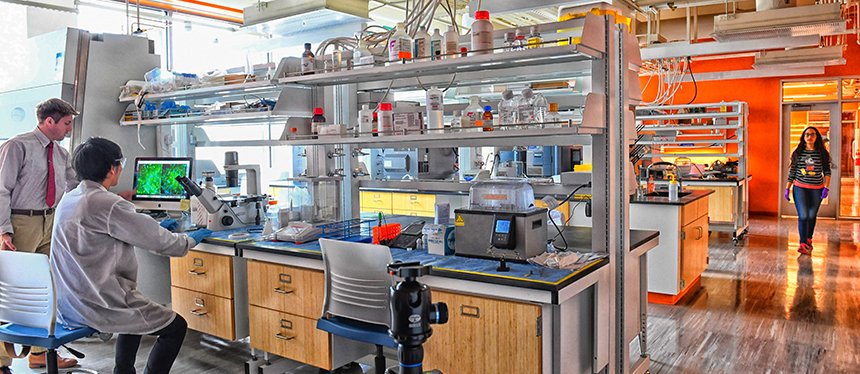Degree Program Enrichments
Degree Program Enrichments
Degree Program Enrichments
Rowan BME’s new flexible curriculum allows students to enrich their degree with certificate programs (CUGS) and/or additional degree programs (e.g. minors), affording students the freedom to receive advanced training and/or to explore areas of interest across the University.
For a listing of available minors, please click here.
For a listing of available CUGS, please click here.
Core Competency Focus Areas
The discipline of biomedical engineering is very broad, and it is important to achieve both breadth and depth in biomedical engineering education. Rowan BME developed core competency focus or concentration areas to give our students needed depth in a particular area. The Rowan BME Curriculum includes 5 or 6 upper-level electives within a focused area of study (5 for students entering Fall 2020 and later). Typically, in the third year of the curriculum, students select a Core Competency Focus (CCF) Area and complete their upper-level coursework (CCF Courses) in this area. Students may also consult with the BME Undergraduate Program Chair to propose and build a customized CCF Area.
Based on the faculty expertise and available courses, the Department offers three CCF Areas:
Organ, Cell, and Tissue Engineering and Regenerative Medicine
Students selecting this CCF area learn the principles of engineering, developing, analyzing, and/or modulating biomaterials, organs, tissues, and/or cells for the regeneration or repair of tissues or organs.
Pharmaceutical Engineering and Therapeutic Delivery
Students selecting this CCF area learn the principles of engineering, development, manufacturing, and regulations relating to therapeutic products, processes, and components for drugs, biologics, biomaterials, and/or biomimetic materials.
Orthopedic Engineering and Biomechanics
Students selecting this CCF area learn the principles of computational mechanics and engineering for designing, analyzing, and/or predicting the mechanical properties of physiological systems or therapeutic devices (e.g., prostheses).
